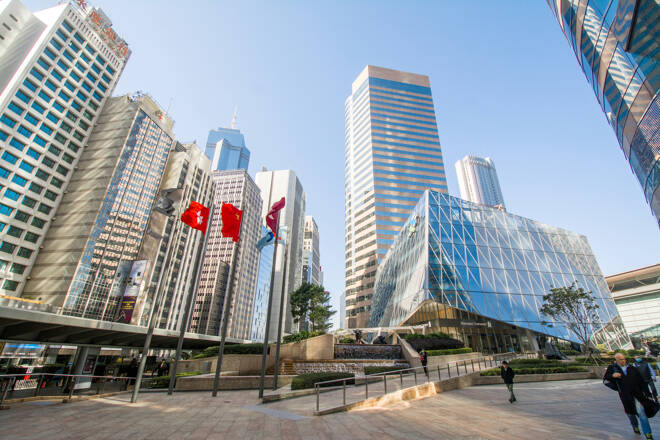Advertisement
Advertisement
Hang Seng Index, ASX 200, Nikkei 225: China Stimulus and the Bank of Japan
By:
US economic indicators from Friday need consideration. However, bets on a BoJ pivot from negative rates and a stimulus from Beijing remain focal points.
Highlights
- The Hang Seng Index and Nikkei ended the Friday session in negative territory.
- Tesla Inc. and Intel Corp. impacted the markets as investors awaited further stimulus measures from Beijing.
- On Monday, Middle East tensions and US economic indicators from Friday will set the tone for the Asian session.
Overview of the Friday Session
On Friday, the Hang Seng Index ended a three-day winning streak, with the Nikkei joining the Hang Seng Index in negative territory. The Australian markets were closed for Australia Day.
Overnight US economic indicators and corporate earnings from Thursday influenced the investor appetite for riskier assets.
US Q4 GDP beat forecast, raising expectations of a soft landing. The economy grew by 3.3% in Q4 after expanding by 4.9% in the previous quarter. US initial jobless claims increased from 189k to 214k in the week ending January 20.
On Thursday, the Nasdaq Composite Index gained 0.18%. The Dow and S&P 500 rose by 0.64% and 0.53%, respectively.
However, Intel Corp. (INTC) released earnings results after the US market close. The outlook for Q1 2024 disappointed, sending the stock price into an after-hours tailspin. Investors also responded to Tesla Inc. (TSLA) earnings results from Wednesday. Tesla ended the Thursday session down 12.13%.
The Asian economic calendar influenced investor risk sentiment.
On Friday, Tokyo inflation softened by more than expected. The annual inflation rate eased from 2.4% to 1.6%, with core inflation down from 2.1% to 1.6%.
US Economy, Corporate Earnings, and China in Focus
On Monday, US economic indicators and corporate earnings from Friday will set the tone for the Asian session. US inflation softened in December, supporting bets on a March Fed rate cut.
The Core PCE Price Index increased by 2.9% year-over-year vs. 3.2% in November. Personal income and spending supported expectations of a soft landing. Personal spending and income increased by 0.7% and 0.3% month-on-month, respectively.
On Friday, the Dow gained 0.16%, while the Nasdaq Composite Index and S&P 500 declined by 0.36% and 0.07%, respectively. Intel Corp. slid by 11.91%.
There are no Asian economic indicators to influence the market trends on Monday. However, investors must consider tensions in the Middle East, Bank of Japan commentary, and stimulus chatter from Beijing.
On Monday, the futures sent mixed signals. The ASX 200 was down 9 points while the Nikkei was up 230 points.
ASX 200
The Australian markets were closed on Friday for Australia Day.
Hang Seng Index
The Hang Seng Index slid by 1.60% on Friday. Uncertainty about stimulus measures from Beijing contributed to the losses.
Tech and real estate stocks pressured the Hang Seng Index. The Hang Seng Mainland Properties Index (HSMPI) and the Hang Seng Tech Index (HSTECH) ended the session down 1.18% and 3.75%, respectively.
Alibaba (9988) and Tencent (0700) slid by 3.34% and 2.75%, respectively.
However, bank stocks had a mixed session. HSBC (0005) gained 0.50%, while China Construction Bank (0939) ended the session flat. Industrial Commercial Bank (1398) declined by 0.26%.
The Nikkei 225
(Graph for reference purposes only)
The Nikkei fell by 1.34% on Friday.
Bank stocks saw further losses. Sumitomo Mitsui Financial Group Inc. (8316) and Mitsubishi UFJ Financial Group Inc. (8306) slid by 2.68% and 3.07%, respectively.
The main components of the Nikkei also ended the session in negative territory.
Sony Group Corp. (6758) and Tokyo Electron Ltd. (8035) fell by 2.44% and 2.39%, respectively. Softbank Group Corp. (9948) declined by 2.20%. Fast Retailing Co. Ltd. (9983) and KDDI Corp. (9433) ended the session down 0.23% and 0.90%, respectively.
For upcoming economic events, check out our economic calendar.
About the Author
Bob Masonauthor
With over 28 years of experience in the financial industry, Bob has worked with various global rating agencies and multinational banks. Currently he is covering currencies, commodities, alternative asset classes and global equities, focusing mostly on European and Asian markets.
Advertisement
